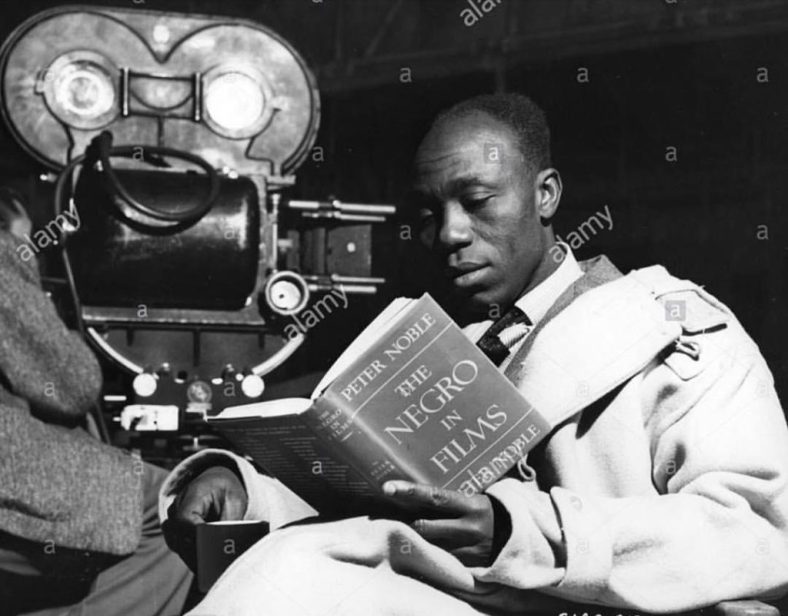Pa Orlando Martins, born Emmanuel Alhandu Martins on December 8, 1899, in Lagos, Nigeria, became a pioneering Yoruba Nigerian film and stage actor. He was born to a civil-servant father, Emmanuel Akinola Martins, from Lagos Island with roots in the Aguda (Afro-Brazilian/ Brazillian heritage) community, and a Nigerian mother from Ijebu in southwest Nigeria. Though he began schooling at Eko Boys High School, Martins dropped out early and carved his future through grit, adventure, and passion for performance. He passed away on September 25, 1985, in Lagos after an illustrious career that spanned more than four decades.
Pa Orlando Martins Education and Early Career
Martins enrolled at Eko Boys High School in 1913, but family hardships drove him to leave. He moved to London in 1919, following his service during World War I as a stoker on a ship, living modestly and taking any available work. He joined theatre productions, worked odd jobs, performed in circuses, displayed pythons, wrestled under the name “Black Butcher Johnson,” and gradually built his craft. In the 1920s he appeared in silent films and on stage, and he sang in productions like Show Boat. These early roles sharpened his performance skills and set him on a path towards global recognition.
Pa Orlando Martins Major Life Events
Orlando’s breakthrough came after World War II, when filmmakers cast him in roles that reached large audiences. He played Reverend Clay (uncredited) in The Heart of the Matter, Magole (witch doctor) in Men of Two Worlds (1946), and Jeremiah in The Man from Morocco (1945). In 1949, he portrayed Blossom, an African soldier, in The Hasty Heart, acting alongside Patricia Neal and Ronald Reagan, who would later become the 40th President of the United States. That role won him widespread acclaim. After many years in Britain, he returned to Lagos in 1959, where he embraced roles in stage and screen, including in Wole Soyinka’s Kongi’s Harvest (1970) and Chinua Achebe’s Things Fall Apart (1971), his last film role.

Pa Orlando Martins Professional Achievements
Orlando Martins built a career that crossed continents , Africa, Europe, and Britain , and mediums: film, stage, and television. In the late 1940s, he ranked among Britain’s most prominent black actors: a 1947 poll listed him among England’s top 15 favourite actors. He acted in Sanders of the River (1935) with Paul Robeson, portrayed major characters in Men of Two Worlds, The Man from Morocco, Where No Vultures Fly, Simba, Call Me Bwana, Killers of Kilimanjaro, Mister Moses, and others. He took leading supporting parts and character roles that showed his range: in dramatic, colonial, adventure, and socially-conscious films.

He also acted with Ronald Reagan in The Hasty Heart (1949), which increased his visibility internationally. In Britain, critics described him as “a tall, powerful figure … with a deep bass voice … friendly, hospitable and with a grand sense of humour.” Besides his achievements in acting, Britain’s Actors’ Equity Association granted him an honorary life membership in 1970. Nigeria awarded him the title Member of the Order of the Niger (MON) in 1982, and theatre artists recognized his contributions in 1983 with national honours.
Pa Orlando Martins Personal Life
Martins lived between Lagos and London for much of his career. He came from a mixed heritage (Brazilian-Nigerian) and faced early hardship (dropping out of school, working low-paid jobs). He never abandoned his roots: after decades abroad, he returned to Nigeria and took roles in local film and stage productions. He stayed active into his later years until his death in 1985. Details about his marriage or children remain less documented in public records.
Pa Orlando Martins Legacy and Impact

Orlando “Pa” Martins stands as Nigeria’s first world-acclaimed actor; many consider him the first “Nigerian Hollywood star.” He laid ground for Africans in international cinema, showing that Nigerian actors could appear on global stages and in major films. He inspired later generations, Nigerian actors, theatre practitioners, filmmakers, to believe in cross-border possibilities. Lagos named a street after him, “Orlando Martins Street,” to remind citizens of his enduring influence. Critics still study his performances. His presence in Things Fall Apart, Kongi’s Harvest, and earlier work ensures the bridge between colonial-era acting, postcolonial identity, and modern Nigerian cinema.
Conclusion
Orlando Martins’s life reflects perseverance, talent, and faithful dedication to his craft. He overcame poverty, limited schooling, and colonial barriers to build a legacy of global recognition. By acting with the likes of Ronald Reagan, portraying rich characters that defied stereotypes, and returning to Nigeria to support local stories, he showed that art could transcend culture and political divides. His story teaches us that identity, courage, and work ethic matter and that pioneering souls create paths for others to follow.

